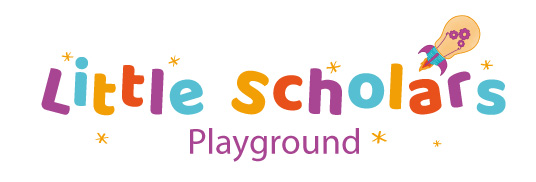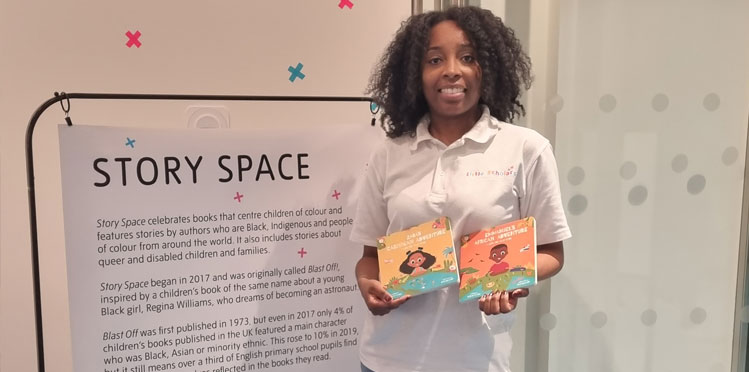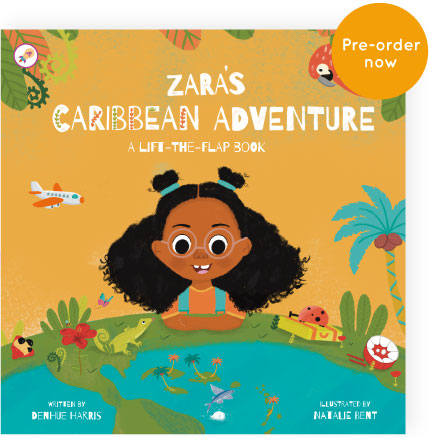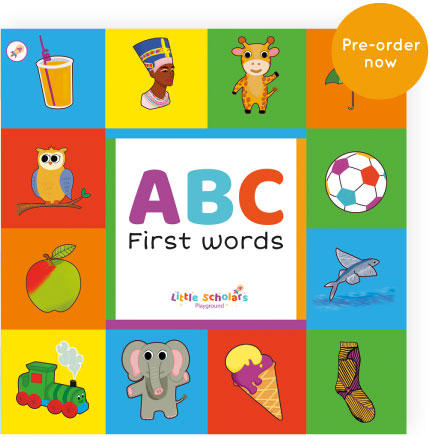How rhyming books and nursery rhymes helps to improve early language development
Estimated reading time: 6 mins

Children love learning new words. They’re thinking which words sound different? Which words sound similar? Children’s speech and language development develops the most in a child’s first three years of life. Rhyming words and nursery rhymes can really help to boost your child’s speech and language development. How well your child knows nursery rhymes can even be an early indicator of literacy success.
We recommend regularly reading rhyming books and singing nursery rhymes to your child. Rhyming words such as ‘house’ and ‘mouse’ helps to develop a child’s phonemic awareness and encourages children to differentiate between similar sounds and letters.
Nursery rhymes and rhyming words have a predictable, rhythmic pattern and a clear beginning, middle and end. This helps children to memorise speech patterns and helps to enable your child to understand the connection between words and predict the next word.
When you sing a nursery rhyme or read a rhyming book, words and phrases slow down making speech easier for your child to hear and follow. They also build upon their vocabulary before they even understand the meaning. Children enjoy the feeling of mastering something, as they start to learn the rhymes by heart, which increases their self-esteem and sense of belonging.
Number rhymes such as ’10 Green Bottles’ introduce children too patterns, numbers and sequences. Number nursery rhymes repeat and are rhythmic, which help to make learning to count fun for your child!
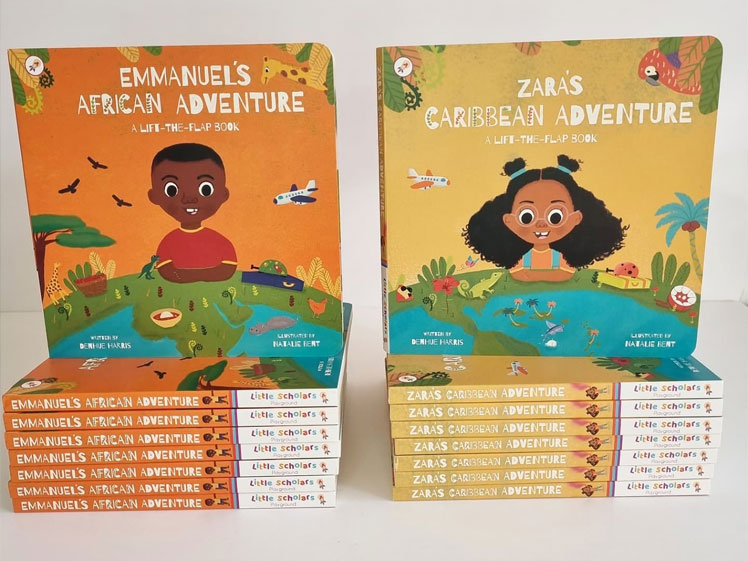
Our two lift-the-flap Zara’s Caribbean Adventure and Emmanuel’s African Adventure books are rhyming books and can be purchased here
The benefits of rhyming books and nursery rhymes
• They learn new words
• Builds their vocabulary
• Improves comprehension
• Develops children’s listening skills
• Helps children Identify sound changes in words
• Feel the rhythm and beat of a particular rhyme
• Recognise repeated sound patterns
• Repetition helps children memorise speech patterns
• Learn whole rhymes off by heart from a young age
• Mirror actions such as clapping
• Helps children learn to take turns
• Reduces stress
• Develops manipulative skills
• Helps with concentration
• Increase social skills
• Helps to establish a sense of order (mathematical reasoning)
• Develops a love of books and stories
• Understand the culture in which they live
• Improves memory and creativity
To equip children with the skills they need when they go to school, it is important for parents to sing nursery rhymes and read rhyming books from an early age.
Natalie
Little Scholars Playground
info@littlescholarsplayground.com

About the author

Natalie is the co-founder and illustrator at Little Scholars Playground. She is passionate about literacy, learning, illustrating, black women in STEM and Montessori.
